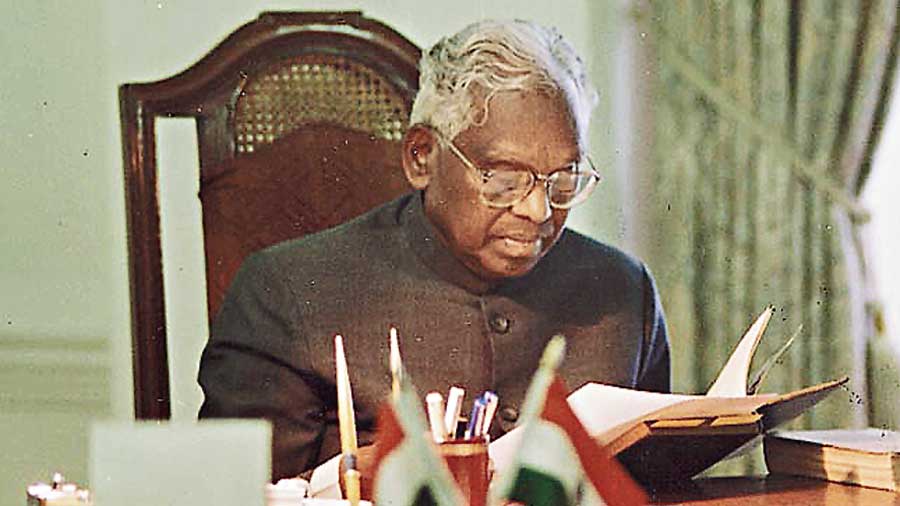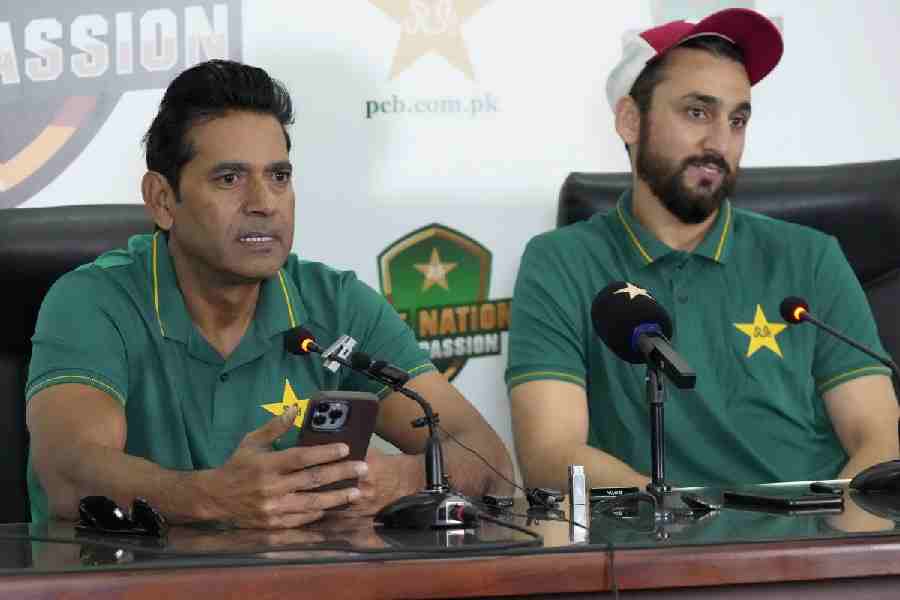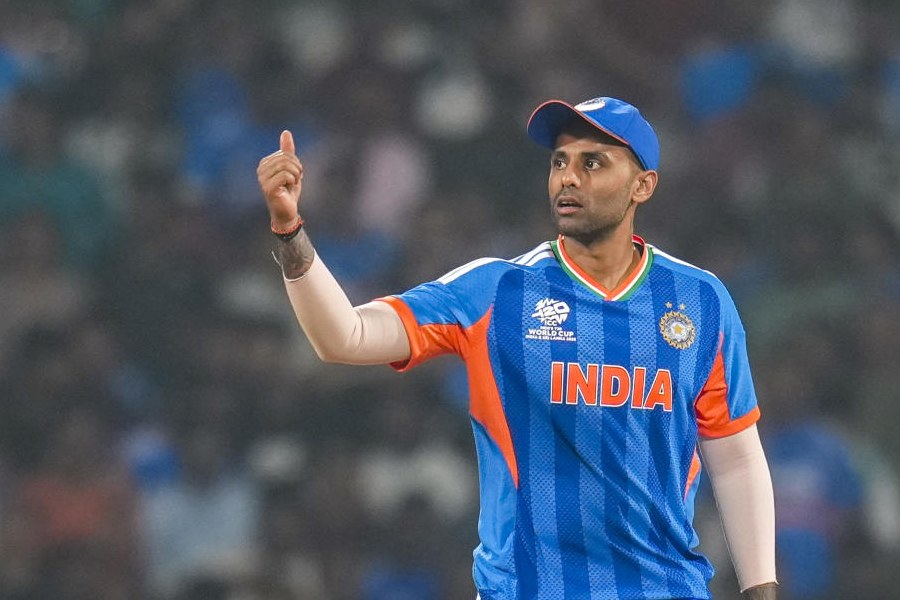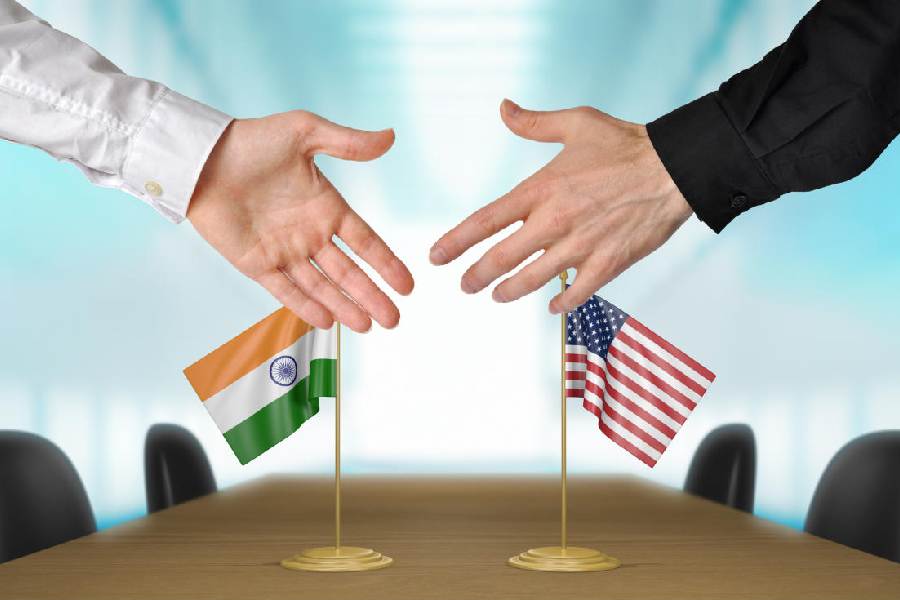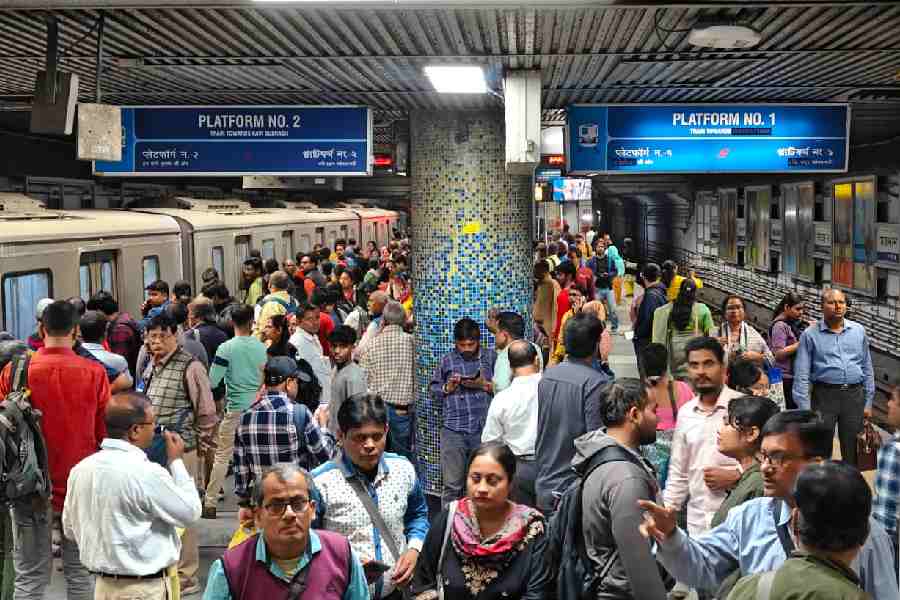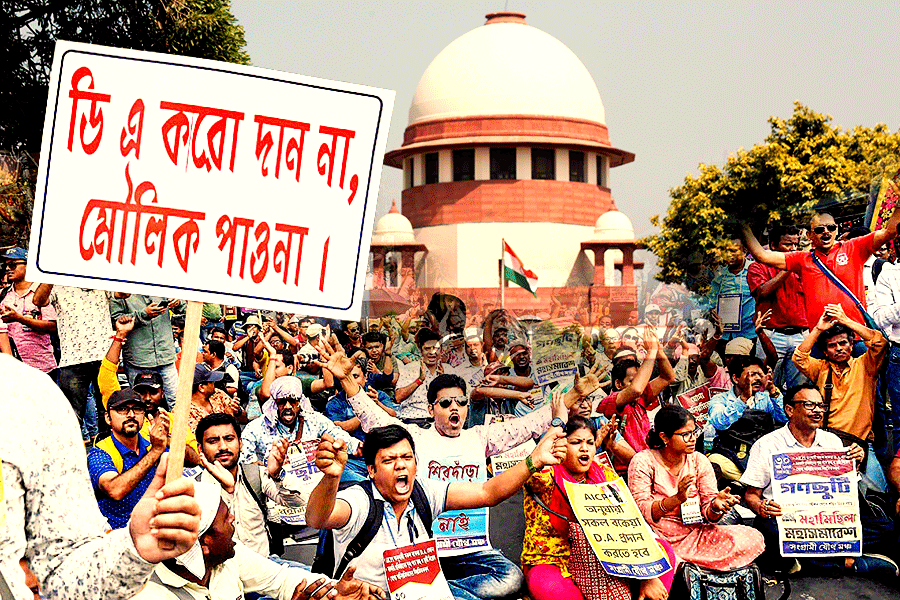Rashtrapati Bhavan has long had a tradition of printing a brochure with the caption, President of India, Curriculum Vitae. Does a president need a CV? Not really. But the publication becomes useful when the Head of State is travelling abroad and his or her hosts need to know the basics about their distinguished guest of whom they have not heard much, if anything at all, from before. The length of the publication conforms to the length of the president’s career. But also to the depth of the Presidential Office’s anxiety to stretch that length to the farthest horizons of the reader’s credulous interest.
This document in respect of K.R. Narayanan, India’s tenth president, contains but four meagre pages. My copy of it is now archival. Its stiff cover has aged, mellowed. The four pages inside have turned into a natural sepia. But in the making of this, as with anything that appeared over his name, President Narayanan was directly and intensely involved. It gives the date of his birth — 27 October, 1920. Nine days from now, he would have turned a hundred. The CV does not burden us with the further detail that another tradition gives his birthday as 4 February, 1921 after the account that his uncle, who escorted him to school on admission day, forgot — or did not know — the actual date and so just improvised and said ‘27 October, 1920’. It is, therefore, possible that he would have been 99 this year and not a full 100. Either way, the ‘story’ tells us everything about the fragility of life’s certitudes in an Indian village. Poverty, caste and dispossession in Uzhavoor, Kerala, in the early years of the twentieth century, made calendars paper things for a Dalit family.
The journey from the hut where he was born and grew up in to Raisina Hill went through a tortuous path where many helped, many hindered, and many more simply ignored the intellectual aspirations of this son of a practitioner of traditional medicine. Until, that is, with scholarships from the Travancore Royal House that assisted his collegiate education in Kerala and then from the House of the Tatas which saw him through his study at the London School of Economics, they could ignore him no more.
Lest it be thought this ‘journey’ ended in Rashtrapati Bhavan, the reader must know that it did not, for President Narayanan did not regard his lofty address as ‘an arrival’ or a culmination. He took the office and the responsibility as something that had just come his way in the much larger trod through life where fortune and misfortune beguile us by their reputations for power.
And so the sheerness of his presidential CV’s size and the ephemeral haze over the date of his birth go to show that in his scheme of things, his experience of Indian society, politics and ethos in the larger arena of a changing world were far more important than the factoids of his career.
A lesser man would have seen to it that any official chronicle of his life would have mentioned his conversation with Mahatma Gandhi on April 10, 1945 when the twenty five year old met (not without difficulty) him in Bombay’s Birla House to get his wishes before sailing for England to take up his study at LSE. And not just because the conversation was with the man it was with but because the young man’s sharp questions do him such credit, one of which, given below, fetching the future diplomat a nugget of an ‘External Publicity’ clue.
KRN: How can a Harijan who goes abroad best serve his country and his community from abroad?
MKG: He cannot serve the one without the other. Abroad you will say it is a domestic question which you are determined to solve for yourselves.
It took the launch in London (1993) of a biography of Harold Laski for the then vice-president Narayanan to speak in public about his hugely successful stint of study for a B.Sc in Economics at LSE which he completed with a first class honours. “The Kerala people there,” he reminisced, “threw a party to felicitate me. And Krishna Menon was invited to be the chief guest. Leaning on his walking stick at the doorway Menon said to me, ‘So, Narayanan, I hear you have got a First. You know, some people get it by fluke.’ I do not know how but I managed to say, ‘Is that how you got yours?’”
Narayanan learnt to protect, not flaunt, his sense of self-respect, exactly as he learnt to protect and advance without trumpeting India’s sense of its greatness. And he did that with a quiet elan that was his own. His speech at the banquet he hosted for President Bill Clinton on March 21, 2000 is a classic of plain-speaking. “As an African statesman has observed to us,” he said, “the fact that the world is a global village does not mean that it will be run by one village headman.” And he concluded the speech with a quote from, appropriately, an American philosopher, Henry David Thoreau, which only he, in the New Delhi of short-termist thought and action, could have thought of and set down: “It takes two to speak the truth — one to speak and the other to listen.”
India in 2000 was different and yet not so different from what India is in 2020. In his Republic Day address in 2000, President Narayanan said something which resonates with our experience of migrant workers fleeing in panic from their extinguished worksites during the Covid-19 lockdown. “The unabashed, vulgar indulgence in conspicuous consumption by the nouveau-riche has left the underclass seething in frustration. One half of our society guzzles aerated beverages while the other has to make do with palmfuls of muddied water. Our three-way fast-lane of liberalization, privatization and globalization must provide safe pedestrian crossings for unempowered India.”
In a public conversation with N. Ram on the eve of Independence Day, August 14, 1998, President Narayanan thought aloud on the scope of his high office: “...there is a subtle influence of the office of the President on the executive and the other arms of the government and on the public as a whole... (but) he can play it successfully only if he is, his ideas, and his nature of functioning are seen by the public in tune with their standards.” Describing himself as “a working President”, he spoke of the president’s influence and said, “You can call it moral authority” and then, with characteristic self-effacement, added “I don’t want to elevate it to such a position.”
And yet that — moral authority — is what he had, and exercised without the slightest display of a personal ego at work.
I started with the CV and must end with the same document. He ensured that the spare text has space yet for the First Lady’s interests and accomplishments over the decades. This was but right for Usha Narayanan, born to Burmese parents, was a remarkable life-partner of his. Prior to their going to Tokyo on a posting, Prime Minister Nehru had asked the young couple to tea. Turning to Usha, he asked how, being of Burmese descent, she viewed their prospective time in Japan. “Life is about healing hurts,” she replied, “We have to look ahead.” The former translator and broadcaster of news for the external services of AIR could not have put it better. Mrs Narayanan did not tell me, as she recounted this conversation in the August of 2000, what Panditji said to her in response. But we can be sure that he knew India was going to be well represented in Japan by this young couple that knew hurts, when it is helped, heals. If not, hurt seethes.
The author was secretary to President K.R. Narayanan from 1997 to 2000

